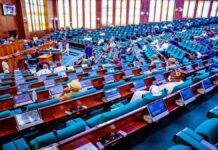Foreign Investors Increase Position in Nigeria Eurobonds
As risk-off sentiment doused, foreign investors increased their position in Nigerian sovereign US dollar bonds. The trading pattern observed in the international market showed that US Treasury yields have been swinging following the Federal Reserve’s decision to maintain the status quo on rates. The market has been reacting to Jerome Powell’s hawkish tone.
The US dollar index weakened against other baskets of currencies, while US Treasury bill yield movement appeared to vary based on Tenor. US inflation which triggered the Fed Funds rate hike has started moderating, but monetary policy tightening remains a top tool for the Fed to achieve its target.
This comes in contrast with Nigeria. Interest rate hikes have failed to curb the nation’s hot red inflation conditions. Analysts believe that consumer inflation will worsen as the year closes.
The pressure cooker for the local inflation surge remains the weakening of the local currency and subsidy removal which happened almost simultaneously in a country with high misery index.
Compared with the US, Nigeria’s yield curve is effectively higher, driving an increased appetite for sovereign bonds despite acute foreign currency challenges.
Midweek trading data showed that the FGN Eurobonds was mildly bullish for the maturities tracked, with the average secondary market yield retracting by 1bp to settle at 10.80%.
Comparably, the 30-year yield declined 0.032 percentage points to 4.547% on Wednesday. Largest one-day yield decline since Thursday, Nov. 16, 2023
In the fixed income market, the government has been borrowing at a cheap rate amidst favourable market conditions. This has kept foreign investors away from parking cash in Naira assets – bonds, treasury bills and OMO bills among others.
Large liquidity position, though most times unstable has been a key driver of the bullish trend observed across primary market auctions. And, this allowed debt agencies to negative better rates for government to keep balance sheet costs lower.
In the secondary market for FGN Bonds, market activity was in quiet mode on Wednesday, as the average yield slightly moved by a base point to close at 15.82%.





























































































